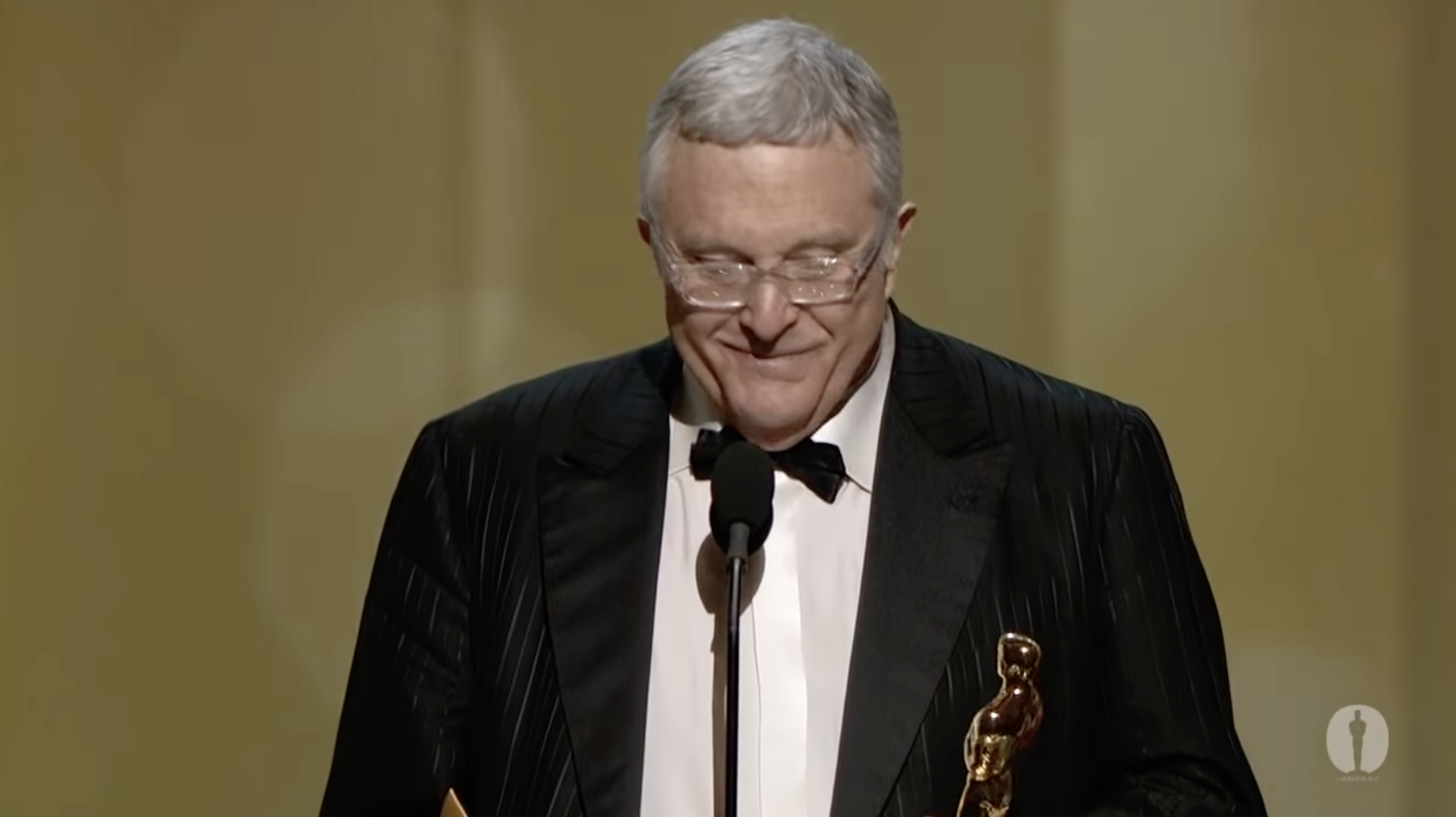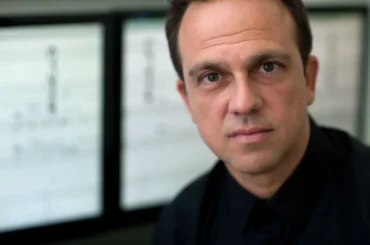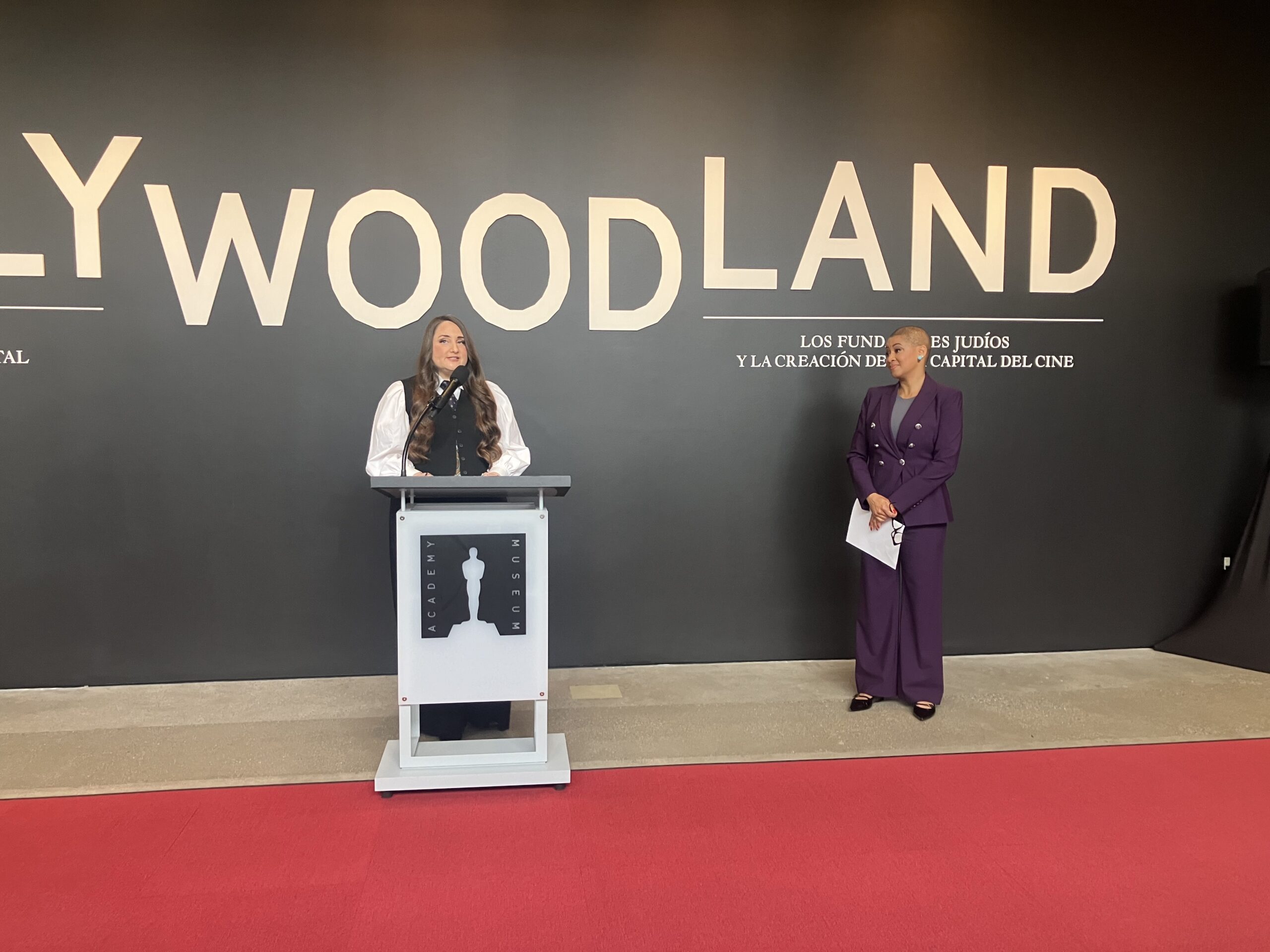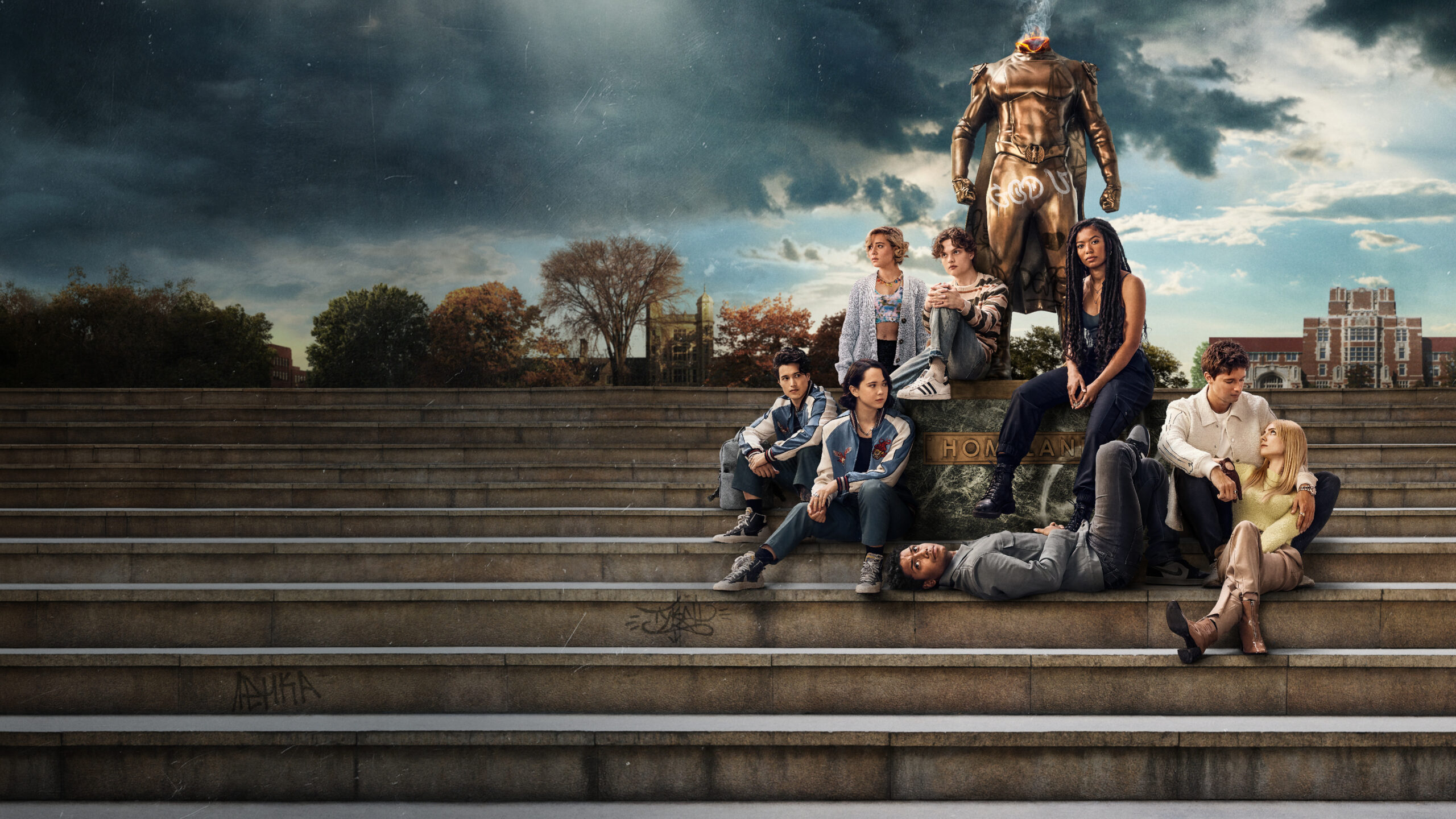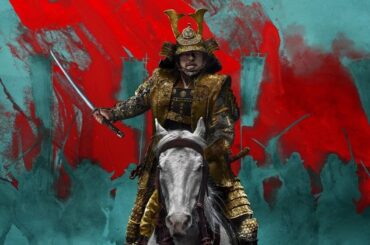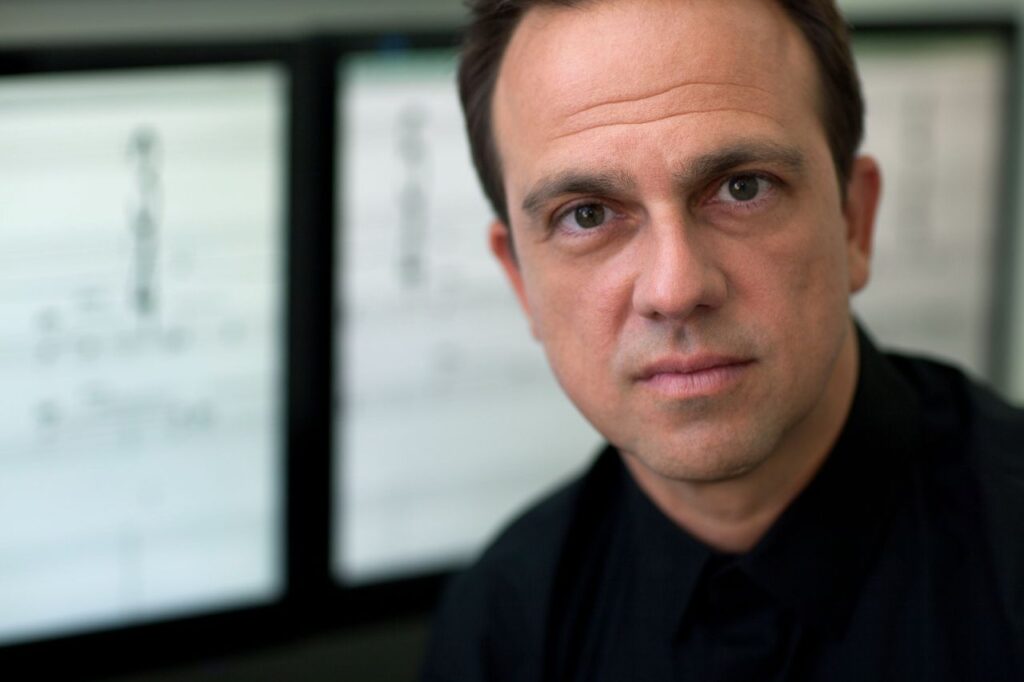
Composer Carlos Rafael Rivera has had a helluva eclectic career. In the last year alone, he scored Griselda, Lessons in Chemistry, and Monsieur Spade. Rivera got under the skin of distinct protagonists, helping their inner-voices come alive in the music. There’s a lot to glean from the career journey and work of Rivera, who once found a mentor in one of the finest to ever compose, Randy Newman.
Carlos learned more than a thing or two from the two-time Oscar winner, 22-time nominee. That’s barely scratching the surface of his career, including decades of wonderful, funny, and sometimes surprisingly dark solo work.
Rivera was at a crossroads in his career when he met Newman. After the musician’s band got dropped from a label, a dream was burned. The composer went back to USC to get his master’s degree in Composition and Music Composition. As result, and maybe as fate would have it, he received mentorship from Newman.
Rivera was ecstatic recounting the experience, so we’re going to share his tale with Newman and USC in full. There’s plenty to learn here from how a career can twist and turn and even hurt, and then, in this case, lead to great opportunities and lessons from a master.
One of my teachers was Don Crockett. He mentored me, and I would start to have breakfast with him occasionally even after I left because I got signed [by a label]. And he goes, “Have you ever thought of finishing your degree?” And I said, “No, not really.” And he goes, “Well, why don’t you? You’re just missing the recital. Have the recital and then see what happens.” I finished the recital, had another breakfast with him, and he goes, “Have you thought of getting a doctoral degree?”
He really helped guide me back from the rock and roll nightmare experience. It was beautiful, but also a dream. Getting signed was a real dream. When it’s good, it’s great. And when it’s bad, it’s a nightmare. It ended, and I started getting my doctoral degree. USC had a mentorship program that they had with some of the members of the board. Randy Newman was one of them.
The reason why I brought up the rock and roll thing is because I was doing classical music, but I had been in a rock and roll world, in a pop world, according to them. So, it felt like somebody they could align me with. And so, I wrote an email saying this and that, and I love to make music. It wasn’t even film scoring as I was doing classical music, and that was it.
Randy wrote an email back to me: “Pleased to see you. Give me a call.” I freaked because I, at that time, was obsessing with “Nilsson Sings Newman,” which is one of his greatest records, from top to bottom. It just doesn’t stop being great and songs move you. They’re perfect. And so, I was going through this whole Newman phase from “Tickle Me” to Live stuff. “Why don’t you tickle me?” All the funny stuff, the ironic stuff. And so, when he emailed me, I couldn’t believe it.
I went to his house. I pulled up a few blocks before, and I had this orchestration book with me. I was reading my ranges just in case he would ask me about the oboe. I was like, oh, I gotta get that right. I was terrified. I walked in, and it was the coolest thing. I thought he was going to be a 10-minute thing, like, “Oh look, you’re a good half-Cuban kid. You go back now, do your thing. And I’ll go be Randy Newman.” But it was two hours. It was a two-and-a-half-hour hang. He was just playing music that he liked, and he was asking me about what I was doing. I was like, oh my God.
He called me for a few more sessions. He was doing The Princess and the Frog at the time, which is exactly when I was mentoring with him at the recording sessions. I was still just freaking out. I walked in, and it was the Disney people, the two directors of the movie, and Randy sitting in the studio; they were recording the orchestra, and they finished a take. The directors are like, “We don’t like this cue, the way it’s working or feels.” In my mind I’m like, “Oh my God, dude, that’s Randy Newman. How dare you speak that to greatness!”
Randy turned around and said, “Yeah, I think we could change it. I think I have some ideas. Let me see if I can figure something out.” And I was like, oh, I get it. He’s working for them. Best lesson. Because you think, how dare they? It’s not about that.
It’s about the thing we’re making. It is about the story we’re trying to tell. The thing you wrote sucks, not you, and getting into that place of mind is really hard. And so, it’s great to see someone like Randy doing that because that means that’s why he worked so many years and is still working.
Check back soon for our full interview with Carlos Rafael Rivera.


